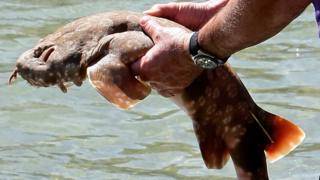- Banned
- #1
I'm watching a documentary about kids with Cystic Fibrosis who are in Foster care.
This is my take on it.
The parents should take care of their kids, or the parents should be in prison until either one of two things happen.
1. The kid with Cystic Fibrosis Turns 18 and ages out of Foster care.
2. The kid is assigned a representative after age 18 because he can't take care of himself.
If the kid dies OF Cystic Fibrosis under 18, while in Foster care, and not under the representation and care of their parents....
The parents stay in prison for the rest of their natural lives, charged with negligent homicide, because it is presumable that the kid didn't get the care that he or she needed because of the parents putting the kid in Foster Care, in a situation where the care that the kid receives has its human limits.
This is my take on it.
The parents should take care of their kids, or the parents should be in prison until either one of two things happen.
1. The kid with Cystic Fibrosis Turns 18 and ages out of Foster care.
2. The kid is assigned a representative after age 18 because he can't take care of himself.
If the kid dies OF Cystic Fibrosis under 18, while in Foster care, and not under the representation and care of their parents....
The parents stay in prison for the rest of their natural lives, charged with negligent homicide, because it is presumable that the kid didn't get the care that he or she needed because of the parents putting the kid in Foster Care, in a situation where the care that the kid receives has its human limits.




